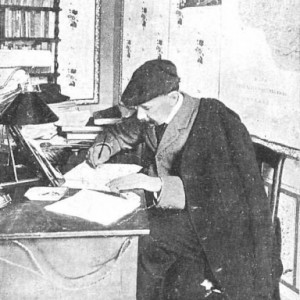 aNewDomain — Writers gotta write.
aNewDomain — Writers gotta write.
In fact, when you embark upon a career as a writer, federal law requires you write a blog post about writing. It’s kind of like an exploratory committee before declaring one is going to run for president.
There’s no real reason for it, it just has to be done.
And that blog post? It has to be targeted to people just like you: people who are trying to write stuff but haven’t yet found a broad audience, an agent or a publisher. They just know, like I know, that they want to write. And writers gotta write.
Last year I wrote six books, one of which is on Amazon and five of which are in limbo. Wrote just about 80 blog entries and innumerable academic papers. So now, as I move into the next phase of a writing career, I’ve got the obligatory advice for you.
So you want to be a writer, do you? Cool. I support that. So, uh, what are you doing here?
Open a Word doc, grab a notebook, whatever. Start writing as soon as you get whatever you need out of this piece. The sooner the better.
Really. You need to go open a Word document or a Pages doc, whatever, and start pounding keys. Or scrawl in your notebook with a pen. Or something. Anything.
If you are writing, you’re a writer. If you’re reading about writing, you’re a reader, not a writer.
Go and write.
Write like you breathe, write like you drink coffee or check email, like you check texts or the latest news about Europe’s antitrust case against Google, the NFL’s preseason schedule, age discrimination in Silicon Valley, or even Charles Manson’s newly broken heart.
Write daily. Write nightly. Write like you mean it. Write like it’s your secret full-time job.
You’re a writer, right? Then you must write.
 Here are the only rules of writing that matter.
Here are the only rules of writing that matter.
There are really only three rules for writing.
First, think. Think a lot. Think and observe people, life and situations a lot. Keep thinking until you have some ideas you like.
Two, start writing. Don’t stop until the piece is done, and don’t let doubt, hesitation, fatigue or anything else stop you. Write the crappiest first draft you can muster, don’t stop until you’re done, don’t stop to rewrite the open or fix formatting or spelling errors.
If you break rule No. 2 you’ll never be a writer. You can’t write and edit at the same time. Don’t try. Follow those first two rules and you’ll finish pieces. Rule No. 3 has to do with editing. For many writers, writing is rewriting. Or, even if the first draft comes out pretty much like you want it to, there’s polishing to do. So, go ahead and polish up what you’ve done. Make it smooth. Make it sing. But don’t do this, ever, until you’ve finished the draft.
You don’t want to be one of those sad would-be writers who keeps writing the same first sentence over and over. Get to the end, no matter what.
Everyone’s got to start somewhere. And no matter where your starting point is, I guarantee that the more you write, the better at writing you will get. You’ll even improve rapidly.
You’ll get better at both the mechanics of it (spelling, grammar, artful words) and the art of it (story, plot, cliché-avoidance, structure). You’ll get better at facing rejection, too, but we’ll talk about that a bit later.
For now, let’s drill down a bit more on those three rules.
 Make love to your ideas. Or at least write them down.
Make love to your ideas. Or at least write them down.
Ideas aren’t beamed into your brain from space. They don’t drop out of nowhere on your head like weird, summer hailstones.
To get ideas, great ideas, you need to spend time mulling things over. What do you like? What do you want to say? What tone do you want to set — atmosphere, theme, pace? What experiences, people, philosophies or strange tales have you always wanted to pass on to people?
Maybe your idea is a character, and you can imagine him in some situation. No need to think it to death. Go ahead and write it.
Do it now.
You might never use what you write, or it might end up in the opening pages of a novel. Either way you’ll start to clarify all these questions as time goes on. But do write those ideas down. Write bits of dialogue, little scenes, descriptions, things you overhear, whatever. Write your ideas down faithfully and watch them build into great ideas that later will be the foundation of other things you write. This you must do.
Everyone is a little different idea-wise, of course. For some of us, such ideas arrive kind of naturally.
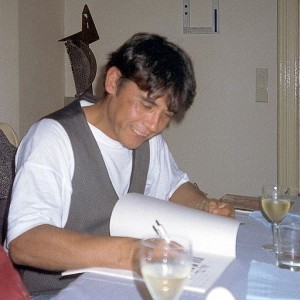 The subconscious mind is working on the problems while we’re chopping onions or driving to work or going to the toilet — always have a notebook and pen by the can or in the shower. Ideas might pop into your head in the middle of the night. Keep a notebook by your bed. Interesting thoughts might occur to you at the oddest places. Write them down.
The subconscious mind is working on the problems while we’re chopping onions or driving to work or going to the toilet — always have a notebook and pen by the can or in the shower. Ideas might pop into your head in the middle of the night. Keep a notebook by your bed. Interesting thoughts might occur to you at the oddest places. Write them down.
Other people get the best ideas by thinking deeply. We need to carve out some quiet time to sit and think very intentionally about our project with no distractions. (Again, the toilet works well for this — it might be the only place you have quiet, privacy and freedom from distraction.)
So who are you? Where do *your* ideas usually come from? Think back and remember when the best ideas came to your mind in the past. What were you doing? Spend a few minutes figuring yourself out in this regard. And keep track. Seriously consider dedicating a notebook or a document as your idea journal. Most writers find idea journals to be enormously helpful. You record not only ideas but the context of the ideas. And having one place to record your ideas will save you from having to deal with little scraps of paper or scattered notes on your phone or tablet to see them all.
Analyzing where your best ideas have come to you is key to all this. Do all your favorite, most-usable ideas come to you while you’re eating muffins at the local deli? Guess where you need to hang out? Are most of your usable ideas in the car driving to and from places while the radio is off because all the stations are on commercial breaks? Leave the radio off from now on. Ideas make a writer. Listening to news, traffic, sports and the same songs over and over isn’t an activity for you. Or maybe, anyway.
Seriously consider getting a handheld voice recorder or downloading an app on your smartphone that acts like one so you don’t have to try to write in your notebook and steer with your knees. So you can record your ideas immediately, not later, when you emerge from traffic.
Ever notice that all the best living writers are still alive?
Listen — writing is not worth dying for!
Someday someone will try to copy your writing style and habits. So what?
So here’s a theme we’re going to stick with start to finish: Do what works for you.
 So your favorite author writes from seven to three every day but Sunday and uses an old typewriter. Another friend who’s a published fiction writer might walk around with a yellow pad and write 2,000 words a day while sitting at Starbucks. That works for them. You need writing habits, too, of course. They’re critical. But copying those folks and writing from seven to three daily, learning how to use the old key-striker or monopolizing Starbucks tables with a yellow pad isn’t going to make you productive if those aren’t the best habits and hours for you.
So your favorite author writes from seven to three every day but Sunday and uses an old typewriter. Another friend who’s a published fiction writer might walk around with a yellow pad and write 2,000 words a day while sitting at Starbucks. That works for them. You need writing habits, too, of course. They’re critical. But copying those folks and writing from seven to three daily, learning how to use the old key-striker or monopolizing Starbucks tables with a yellow pad isn’t going to make you productive if those aren’t the best habits and hours for you.
When are your best hours? Do you write better at night or by daylight? When do words and ideas come easiest to you? To be a writer, you need to know the answers to these questions.
Also: Do you work best when there’s lots of noise and activity around, or do you like to be solitary? Build your writing habit around what you already know about yourself. You want to write when you feel most energetic, thoughtful, optimistic and alive. Ernest Hemingway, famously, thought he wrote best in coffee shops and bars. He thought he was at his narrative best when buzzed. It’s when he felt most vibrant.
Copying Hemingway or any other writer, for that matter, is for losers. Build your own constructive and, if you must, destructive habits. Make them match your style. You’ll be more prolific if you write when, where and how works best for you.
You will need discipline, though. Discipline in working out your ideas, creating and exploiting the contexts in which they occur, and then discipline in writing, which is work, after all.
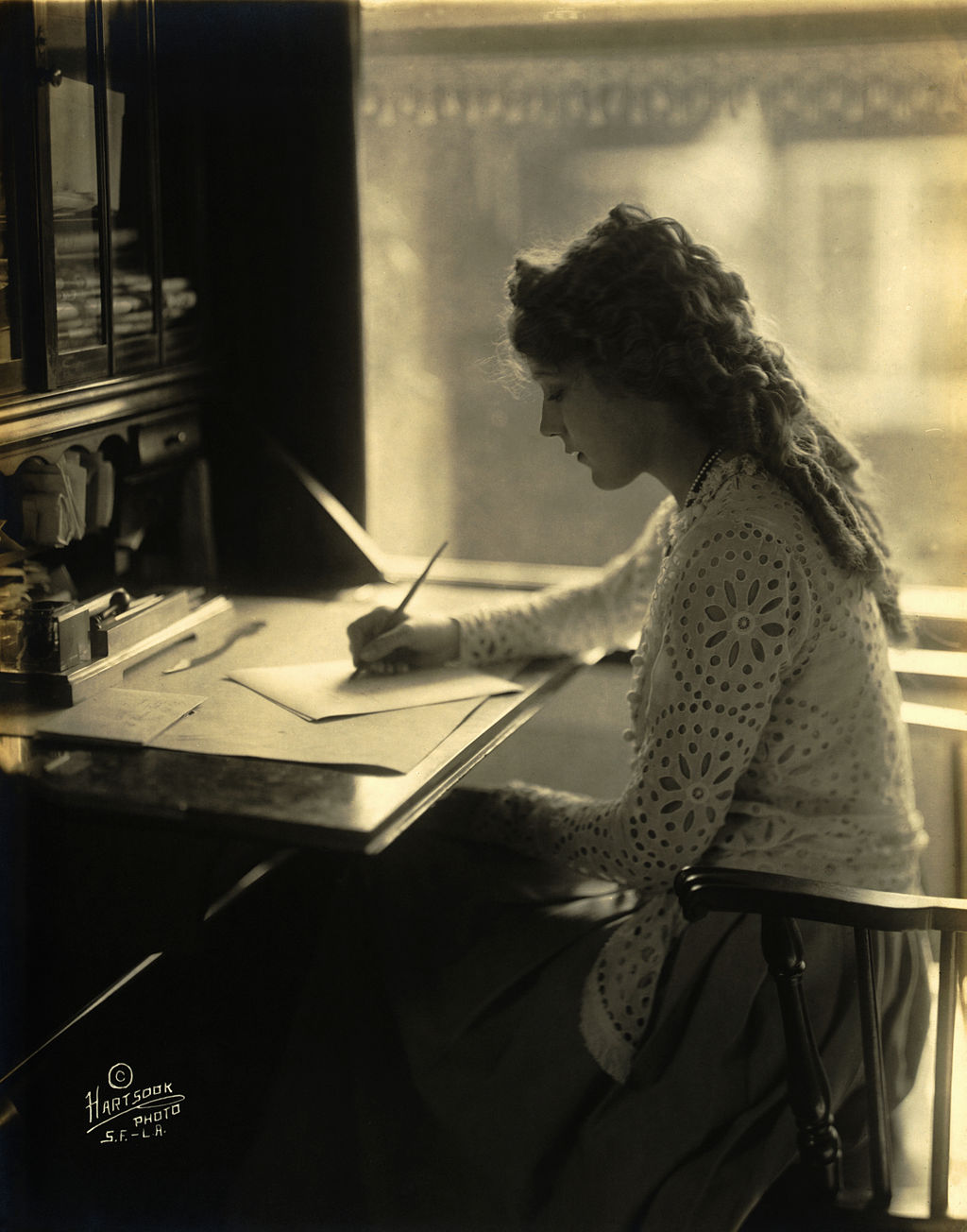 Are you an outliner or instinctive writer? Figure that out early.
Are you an outliner or instinctive writer? Figure that out early.
Are you an outliner or an instinctive writer? Most people fall into one category or the other.
The prolific author of The Fountainhead and Atlas Shrugged, Ayn Rand, kept unbelievably detailed notebooks where she sketched out all key characters, drew maps of their homes, wrote down what they ate. She detailed long, fleshed out political opinions of her characters and their philosophies on just about everything. She created worlds first and the manuscript second.
I have friends who are successful writers, friends who actually design uniforms and wardrobes for characters. Many writers swear by a simple chapter-by-chapter summary and outline they can follow like a recipe when they get started.
And then there are instinctive writers, people who start at a beginning, middle or end of a plotline or argument they’ve yet to flesh out completely or even figure out at all. Then, as they write, they let their imaginations fill everything else in.
Such writers just pound keys until they find out what happens.
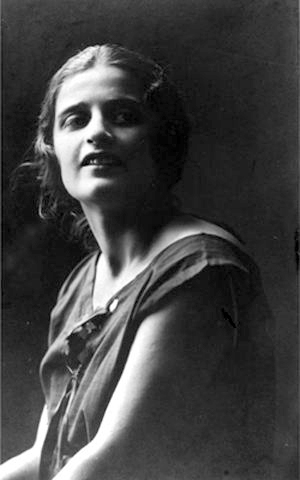 That’s a kind of writer that other writers often strive to emulate. It seems romantic and intensely creative, sure, but don’t choose a writing style just because it seems sexy. If you don’t choose a writing method and style that fits your own characteristics, behaviors and inclinations, you will never succeed at anything except annoying yourself and the people who love you.
That’s a kind of writer that other writers often strive to emulate. It seems romantic and intensely creative, sure, but don’t choose a writing style just because it seems sexy. If you don’t choose a writing method and style that fits your own characteristics, behaviors and inclinations, you will never succeed at anything except annoying yourself and the people who love you.
Try both methods if you are truly not sure. Either way, this part is non-negotiable: Make sure you finish what you write when at last you do write. Planning is no excuse for procrastination and neither is a creative crisis or writer’s block.
Write. Just write. Finish it. And then go back to work on what you have.
Procrastination is enemy No. 1 for most writers. Watch out for it. If you find yourself planning as a way of procrastinating or assuaging nervousness, stop that. Just stop that and write.
Take a seat. You’ll be sitting there for a long, long time.
Now you’re in the seat. The seat could be anywhere. I’m only assuming you’re sitting when you are writing because it’s hard to imagine that you’re in free-fall or jogging. But, hell, whatever works for you.
Is your seat your place on the train, your end of the couch while the kids jump on the other end, a carefully organized desk space in your custom-built studio or a stool at a Chinese deli in the wrong part of town?
Fine. But go there. Sit there. That desk you drive will take you far, sure. But first you need to get in that driver’s seat and stay there.
But where should the seat be? It needs to be in the environment where you’ve decided you’ll do your writing.
Don’t get too locked up into some old way of doing things, though.
 I used to like to have bad movies on in the background. This used to work for me. But the older I got, the more I began to realize that the bad movie thing was making me less productive.
I used to like to have bad movies on in the background. This used to work for me. But the older I got, the more I began to realize that the bad movie thing was making me less productive.
For whatever reason, I find I can’t divide my attention the way I used to. So I changed the environment my seat was in. Now, the TV is off. Music is off. Coffee is on.
And coffee is another change I’ve made. I used to avoid caffeine but, again, things change with age: These days, coffee doesn’t make me jumpy and angry so much as it helps me focus down.
Know yourself. You’ve got to sit in a place that works for you, in an environment that works for you. Those could change. Have the self-awareness and courage to change what doesn’t work anymore. And if it does work, sit in your seat and write.
While you’re sitting there, feel free to experiment from time to time. Did you put your seat in a room with music? Okay. How’d you do? Did you do twice as many words with music as without? Are they good words or did the music affect the pace and tempo of the work?
Is Donna Summer maybe bad for your suspense novel because it just isn’t possible for you to create tension and boogie down at the same time?
I am sure you are not alone in this.
Be a scientist about it. Just find out what works for you and do it.
Pound them keys, mate.
Advice is only as good as the listener. Go, read all the writing blogs, all the interviews with your favorite writers. Try out what seems likely and skip what doesn’t. And if it works, do it. If not, great — you aren’t them. You’re you. I’m me.
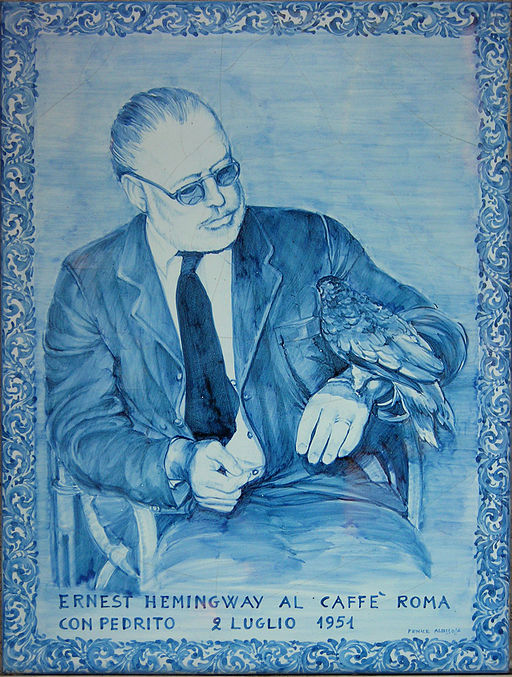 Now: You’re in the chair, the space is as quiet or as noisy as you want (or can manage, let’s be real), your writing tools are there in front of you. Next step: Pound them keys, mate.
Now: You’re in the chair, the space is as quiet or as noisy as you want (or can manage, let’s be real), your writing tools are there in front of you. Next step: Pound them keys, mate.
Or scrawl, or paint your letters in elaborately perfect penpersonship. I don’t care.
Just make words.
How many? At first, maybe not many (or maybe you’re a natural, or the idea has been brewing for a long time and the only limit is your physical endurance). But you have to do it. I can’t do it for you. Nobody can. You are the best person for this job. Do it. Why are you still here? Do it now. Make. Words. String them together. Make sentences, paragraphs. Freewrite or carefully stretch your lines from anchor to anchor in your outline. I still don’t care. Just write.
Every day you commit to it and do it, it will get easier to do. Once it’s a habit, you might even eventually arrive at the place I call that-which-writes. It’s that most Tao of places where writing is easier than not writing, where you find yourself crafting lines while standing in line at Charbucks or describing your drive home from work to yourself in the past tense.
With practice, when you sit down, the words tumble out of you because they have to.
At this level you might vomit 10,000 words a day onto the page. You might never get there, and that’s totally cool, too.
Maybe you’re a more-thoughtful, brooding author who writes 500 words a day, then spends the next six days tinkering with them until they’re perfect, every line a micropoem, every paragraph a minimalist haiku that perfectly sets tone, is rife with implications.
Fine.
Just. Write.
There is no such thing as a mandatory daily word count. Should there be?
There are some web pages out there showing how many words per day your favorite authors can produce. Some great writers are truly prolific, others struggle to do a couple hundred words daily. But they’re all your favorites, right.
The lesson is there is no single formula or expectation. What works for you? But what is clear is everyone has their own discipline, regimen, schedule, expectations. They create their space, and hang out there until the job is done.
Because, whether you’re getting paid for it or not, writing is a job. A calling, a career — yeah, maybe. But first it’s a job.
It’s a 9-5 (or whatever you can squeeze in). And like any job, you have to get into the swing, learn the ropes and apply yourself. Fortunately and unfortunately, you’re the only boss you’ll ever have. So you have to live with yourself.
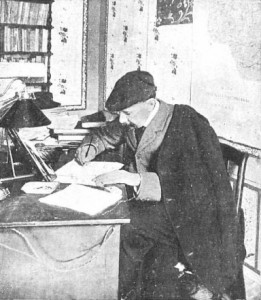 How long before you sell that first novel? Well …
How long before you sell that first novel? Well …
Maybe you can sell your first novel based on the first draft. More likely you write six or eight novels before you get picked up, if you ever do. Those first seven novels weren’t wasted: they were practice for the one that put you in the right place at the right time. I’m up to six without any interest from agents or publishers yet, and I’m not terribly discouraged.
I write 8 to 12 hours a day if nothing else demands my attention, peaking at about 9,500 words daily, rarely falling below 2,000 even if I have to go to one or more of my daily jobs, write blogs and so forth.
With all of that practice, in the end failure seems unlikely.
I’m a writer whether someone buys my work or not. Because I write. A lot. Want to be a writer? Get to it.
And anyway, screw what people want.
Wait. You’re still here.
Either you think this advice is helpful (dubious), or you’re still engaging your doubts about whether you can do this. Well, you can. Lesser writers have and they’ve succeeded. What do they know that you don’t? Nothing. But they write.
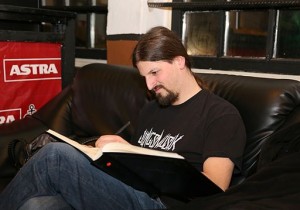 At some point in the process, you’re going to doubt yourself. Write anyway. Sometimes the doubt can be a real hindrance. You throw your work in the trash like Stephenson. You walk away, take up the guitar or painting or something. Sometimes doubt helps you in subtle ways, though. Let me explain.
At some point in the process, you’re going to doubt yourself. Write anyway. Sometimes the doubt can be a real hindrance. You throw your work in the trash like Stephenson. You walk away, take up the guitar or painting or something. Sometimes doubt helps you in subtle ways, though. Let me explain.
I’m a natural writer. I don’t outline or plot or anything. I have an end point in mind, and I sort of steer things there but mostly let the characters do what they want in the world.
Sometimes, partway through a story, I wonder: Where is this really going? Why would anyone want to read it?
Half the time, my next thought is, I’m an artist. Screw what people want. I won’t worry about anything that compromises the story — old clichés, or pop references, or vampires, trendy crap to try to sell books; no more violence than the story needs, or sex for the sake of smut to move copy.
So my doubt refocuses me on the worth of the story, which is usually some underlying existential theme I think is important and that can only be expressed through human interaction.
The other half of the time, my response to my own doubt is yeah, I do sort of suck. So what can I do to be better, to make this better?
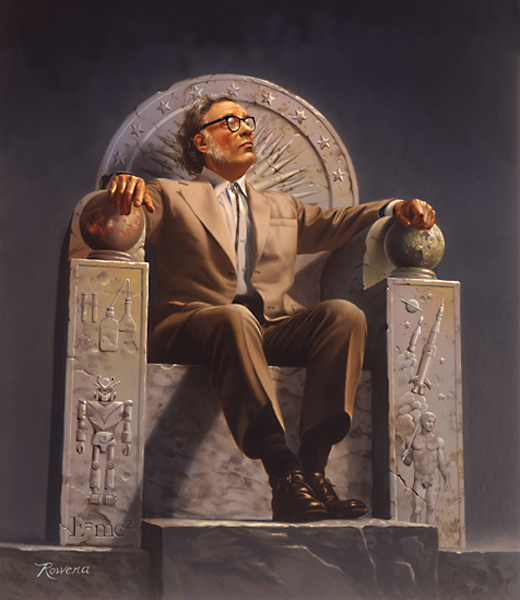 One response to this is to admit that this year I’m not Asimov. He never rewrote a story, he did not substantially edit his work. So they say, anyway.
One response to this is to admit that this year I’m not Asimov. He never rewrote a story, he did not substantially edit his work. So they say, anyway.
I like to think I’m like Asimov. I’m prolific and instinctive, like him, and I can speak in public on nearly any topic without sounding too stupid, like Asimov. But when I go back and read my work, I can see where some good revisions at a minimum would help. Would you believe I’m about to embark on my first ever re-write? Some writers say all good writing is rewriting. That’s never been the case for me.
We writers are all so different.
Doubt, when it drives you to strive for excellence, is a good thing. Doubt — when it ruins your ability to work or makes you feel bad about yourself — is poison.
We’re talking here about the difference between shame and guilt: Guilt is the knowledge you’ve done something bad or unacceptable. For that you can apologize and maybe make some amends. Shame is the knowledge or belief that you ARE bad or unacceptable, and for that there is no recourse.
So sure, doubt your work. If that helps you make your work better. But never doubt yourself.
Writing is not worth dying for, not psychically, especially.
Why you’re getting out of here right now
There is nothing special, absolutely not one thing special, about your favorite author. They worked hard, sometimes absurdly hard. They believed they could do it. They endured many rejections or maybe were discovered right away — they were more or less lucky. They doubt themselves.
You are just like your favorite author.
Because you’re getting out of here now — these are the last lines and there’s no more for you to read. You’re getting out of this document and going into your seat. Pounding keys, making it happen.
Just. Make. Words.
For aNewDomain, I’m Jason Dias.
Art credits:
Image one: Stefan Smythe (Own work) [CC BY-SA 3.0], via Wikimedia Commons
Image two: Gerhard Doerries (Own work) [GFDL or CC BY 3.0], via Wikimedia Commons
Image three: “Benito Pérez Galdós escribiendo Zumalacárregui, de Compañy” by Manuel Compañy – Nuevo Mundo Año VIII. nº 371. Licensed under Public Domain via Wikimedia Commons.
Image four: U.S. Government (English: Extracted from a webpage of the ACHP) [Public domain], via Wikimedia Commons
Image five: Hartsook Photo [Public domain], via Wikimedia Commons
Image six: USSR Passport of Ayn Rand [Public domain], via Wikimedia Commons
Image seven: J.-H. Janßen (Own work) [GFDL or CC BY-SA 3.0], via Wikimedia Commons
Image eight: Ernest Hemingway by Mystère Martin (Own work) [GFDL or CC BY-SA 3.0], via Wikimedia Commons
Image nine: “Isaac Asimov on Throne” by Rowena Morrill – en:Image:AsimovOnThrone.png, uploaded to en:Wikipedia by en:user:Xiong 14:06, 2 April 2005. Via Wikimedia Commons.
Image 10: Kurt Vonnegut by Steven Daniel [CC BY-SA 3.0], via Wikimedia Commons












